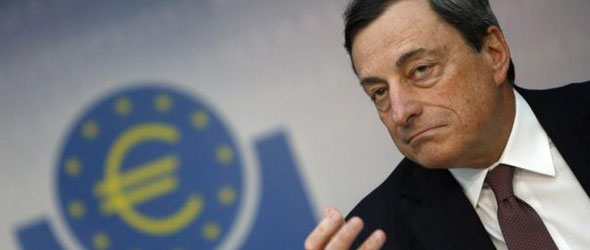Europe’s interest rates have probably reached a bottom. Although the economy has been in recession since Q4 2011, the European Central Bank (ECB) hesitated until this morning to lower its main refinancing rate at which banks can borrow funds by a quarter percentage point to 0.5%.
Today’s rate cut brings the price of money in the Eurozone into line with that in the United Kingdom and is likely to have been the last reduction because further cuts are considered relatively ineffective and put the orderly functioning of money markets in jeopardy. If the ECB wishes to stimulate the Eurozone economy further the next likely step is some form of quantitative easing.
There had been growing speculation about a rate cut over the past weeks as the Eurozone labour market kept deteriorating and the depth of the Eurozone economic crisis became more widely acknowledged. A lowering of Spain’s official growth forecast – which we believe to be optimistic still – and a higher projected budget deficit in France are symptoms of the demand slump caused by the need to narrow fiscal deficits and restructure within a fixed exchange rate system.
A cut in interest rates has long made sense given the scale of the Eurozone’s fundamental economic weakness. A sharp fall in consumer price inflation announced yesterday finally gave monetary policy makers sufficient confidence to implement a cut. Annual consumer price inflation dropped from 1.7% in March to 1.2% in April, a big drop that raises the risk of deflation.
Commodity prices, which had led to high inflation since 2011 despite much unused productive capacity, have started to come down from their elevated levels. If sustained, this trend may drive prices down further this year and next. The ECB is likely to stay cautious, however, as it recognises that low prices are due to internal devaluation and restructuring rather than lack of monetary stimulus. Today’s action gives a marginal boost to the economy and the ECB is likely to keep its powder dry for the return of more turbulent times.











